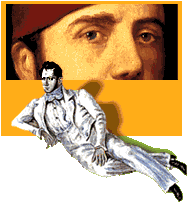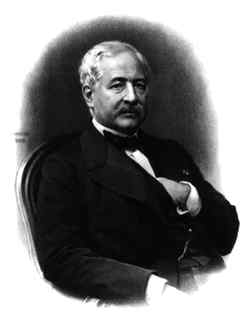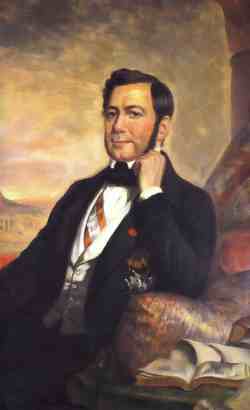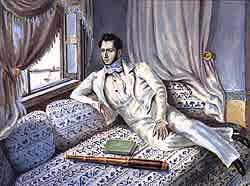 |
Dictionnaire du second empire, Jean Tulard, ed., Fayard, 1995.
During this first period of residence in Egypt, Ferdinand de Lesseps read the Description of Egypt by the engineer Le Père, who had accompanied Bonaparte on his campaign in this country. On looking at Le Père’s construction projects, de Lesseps was inspired with the idea of a canal linking the Mediterranean and the Red Sea.
However he was then appointed Consul in Rotterdam, and after that in Barcelona, where the protection he provided to civilians during the uprising of 1842 earned him the cordon of Officer of the Légion d'honneur. In 1848, de Lesseps was appointed French Minister in Madrid by Lamartine.
Firstly in Constantinople, where de Lesseps attempted in vain to secure the approval of the Ottoman government in 1855, doubtlessly in view of the attitude of the English who were afraid the French might threaten the East Indies trade route. Then de Lesseps left for England where, for want of swaying Prime Minister Palmerston, he undertook to win round the chambers of commerce. In 1858, a floatation enabled him to collect a hundred million Francs from 20,000 investors, mainly French, without the support of the major banks. He thus founded the Universal Company of the Suez Maritime Canal. But even once work on digging the canal had begun, the controversy continued.
Further issues of securities made it possible for work to continue, after it had been slowed down by a cholera epidemic. Finally, the Sultan of Constantinople issued the firman sanctioning the company in 1865, and the following year Great Britain agreed to acknowledge its existence officially.
Work was successfully completed in 1869. The waters of the Mediterranean and the Red Sea were united on 15 August, and on 17 November the canal was officially inaugurated with magnificent ceremony in the presence of numerous world leaders. At the head of the flotilla was the Eagle bearing the colours of France. At his side, Empress Eugénie accompanied Ferdinand de Lesseps, President of the Suez Canal Company, as he savoured his triumph. It was after all thanks to his energy, dynamism and negotiating skills, and his managing to find the support necessary to overcome all opposition, that this great work was accomplished. When the war of 1870 broke out, de Lesseps was in London being received by Queen Victoria.
Under the Third Republic, he became "the Great Frenchman", "the most famous man in the world". His interest turned to the exploration of Africa and, among other things, to the expeditions of Savorgnan of Brazza. In 1884, he was elected to the Académie Française. He played an active role in assuring a successful outcome for the Suez Canal Company, for example when England bought up company shares owned by Ismail in 1879, or during the Arabi Pasha revolt in 1882, and managed to conclude a deal between the Company and British shipowners over rates payable on passage through the canal. However in 1878, on obtaining a concession from the Columbian government to build the Panama Canal, he embarked upon a new and high-risk venture.
Geographical and financial difficulties along with the opposition of the United States brought about the failure of the project, ending in a serious political and financial scandal (1888-1892). Ferdinand, sentenced to five years in prison in 1893, died the following year, ten years before the Panama Canal was opened under the aegis of the United States.
Alain Plessis
 |


